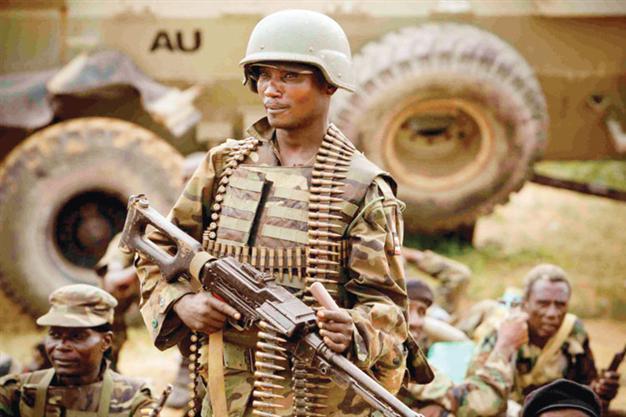Istanbul gathering to define major contributors to solving Somali woes
Dr. AUGUSTINE MAHIGA

Ugandan soldiers serving with the African Union Mission in Somalia (AMISOM) prepare to board military trucks in the town of Afgoye, west of Mogadishu, as they prepare to deploy south of the town on the road to Merka. AMISOM and Somali National Army (SNA) is on a joint mission to drive al-Shabaab out of the Afgoye corridor. REUTERS photo
For years, Somalia has remained one of the most intractable challenges on the international community’s agenda. Ranked near the bottom on every possible indicator of progress, the “world’s only failed state” had been all but written off by many observers.The extremist insurgent group Al-Shabaab controlled much of the country, with only some few thousand under-resourced African Union peacekeepers standing between them and complete domination of the capital city Mogadishu. The Transitional Federal Government (TFG) was viewed by many as entirely non-functional.
When I took up my post as special representative of the secretary-general two years ago, I was assured of the inevitability of failure by more than a few of my colleagues. And yet, Somalia’s progress in recent months has been no less than stunning.
As I write this, Al-Shabaab has long retreated from Mogadishu and business is booming in the city -- even international air traffic has resumed, with Turkish Airlines leading the way. On the political front, traditional elders are meeting in the Somali capital to select members of the National Constituent Assembly, which will provisionally adopt an interim constitution.
The Assembly would also elect members of a new Parliament that would, in turn, elect key leaders of a new government. In the absence of direct elections, the elders are the custodians of political legitimacy. Their presence in Mogadishu symbolizes national unity and their commitment to the peace process. The transitional period is on track to end on Aug. 20, 2012. We are on the cusp of a possible sea change, and Somalia has its best chance for peace in decades.
Roles of regional bodies
This progress is the product of hard work on the part of a number of actors. The African Union forces have held the course and persevered in the face of a determined opposition.
Regional bodies such as the Organization of Islamic Conference (OIC) and the Inter-Governmental Authority on Development (IGAD) have remained actively and constructively engaged. Key U.N. member states remain deeply involved in promoting development, recovery and institution-building in Somalia. These include the United Kingdom, which recently convened an important meeting of all stakeholders in Somalia in London, and Turkey, which is hosting the important “Istanbul II” Conference.
It is my hope that this gathering will define elements of the post-August strategy, and strengthen Somali ownership of the process in partnership with the regional and international stakeholders.
Challenges ahead
These investments of time and effort have begun to pay off in tangible political dividends. The draft constitution will be tabled before the principals, pending its submission to a National Constituent Assembly for provisional adoption.
This is essential for ending the transition, and sets the stage for further deliberation on the constitution in the post-August period, followed by a referendum to approve the final constitution. Throughout, this process will remain participatory, legitimate, inclusive, transparent and, above all, Somali.
Of course many challenges remain. The implementation of the Roadmap on Ending the Transitional Period is threatened by tight timelines and lack of resources. Al-Shabaab increasingly resorts to brutal asymmetric attacks that have already claimed countless innocent lives. Political outreach and reconciliation in areas newly recovered from Al-Shabaab insurgents must be strengthened as the Somali authorities continue to bring more territory under their control beyond Mogadishu.
As Al-Shabaab retreats, the TFG must be assisted in establishing local administrations to exert political and administrative authority at the local level, and the recovery of new territory must be accompanied with the provision of basic social services. Efforts to strengthen outreach and reconciliation with the regional and emerging administrations must be expanded, and in order to consolidate the hard-won gains on the military side, support for all aspects of the Somali security institutions must be prioritized. The Somali people must benefit from the peace div idend as soon as possible.
We must also expand our work in addressing the scourge of piracy. I am encouraged that, following the London Conference, a comprehensive strategy against piracy is emerging aimed at addressing the challenges on both land and sea. But perhaps most of all, let me come to the issue of spoilers -- those obstructionists who serve their own selfish agendas rather than working for the good of their country. It is critical that we deal with these elements before they succeed in undermining the peace process.
On May 1, UNPOS, IGAD and AMISOM issued a strong joint message to all potential spoilers that non-compliance with or active obstruction of the Roadmap will not be tolerated and will be met with concrete action. International cooperation and coordination must be strengthened, and we must show the political will and cooperative resolve to follow through on our warning if the process is to remain credible.
Somalia has come a long way, but it will take a concerted, concentrated and communal effort to ensure that this rare moment of opportunity is seized.
* United Nations Special Envoy for Somalia Dr. Augustine Mahiga
















